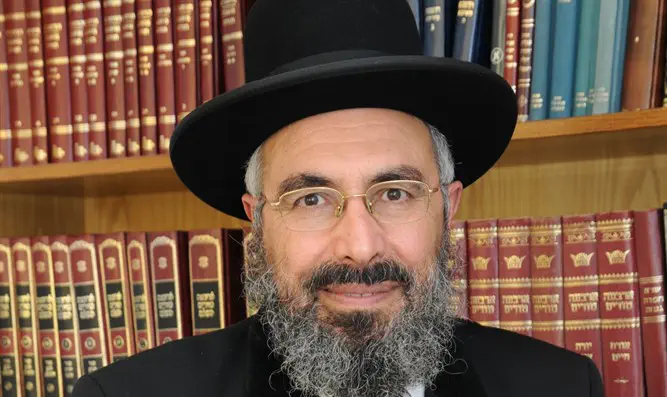Chief Rabbi of Kiryat Ono blesses the proposed law seeking to curb the influence of current Supreme Court justices on selection committee.

Chief Rabbi of Kiryat Ono Rabbi Dr. Ratzon Arusi gave his blessing to the proposed law of Justice Minister Ayelet Shaked that seeks to curb the influence of current Supreme Court justices in determining who will join their ranks on the bench.
“It is a very correct proposal,” Rabbi Arusi told Arutz Sheva. “Especially today, when we know that on the judicial selection committee there is representation of specific groups only, a ‘special majority’ [requiring the approval of 7 out of 9 on the selection committee to select a justice] creates the dependence of everyone on everyone else such that it is not always possible to ‘renew the bench’, because all sorts of interests are interfering. A reduction of the required majority [to 5 out of 9 on the selection committee] will enable greater diversity in the appointment of judges.”
Rabbi Arusi suggested to add to the law the requirement that all committee members be present when voting on appointments. “When the Torah said ‘go according to the majority,’ that was on the condition that the whole forum was participating, but if not, there would be no vote. There must be a majority from among everyone, not like in the Knesset today where laws are passed by a majority of only those present.”
According to the Rabbi, the Supreme Court has, starting in the period when Aharon Barak was Chief Justice, become an activist body and has appropriated authority for itself to which it is not actually entitled. Barak was famous for saying that “everything is judiciable” and ran the court that way.
“In principle, the Supreme Court needs to be a court for appeals from lower courts and a court for matters of administration and justice. Today, the Court has taken for itself the authority to create laws and nullify laws of the Knesset.”
“How can it be that such important matters are determined by judges with a certain agenda and that the election of the judges does not allow for any renewal? There’s no expression of the majority here – it’s neither democracy nor Judaism.”
Rabbi Arusi believes that the Supreme Court, a secular body, must not get involved in qualitative matters related to Judaism. “There are things not related to the present place and time, but rather to the Jewish people – such as questions of religion and state – not just in Israel, but around the world and throughout the generations. It cannot be that a Supreme Court that doesn’t reflect the values and beliefs of Judaism will make judgements about Jewish values.”
“A Supreme Court like that can’t make qualitative decisions about the State of Israel. Therefore, I am full of hope that the new law, if it passes, will be the first step towards change.”



… the Haredi too.